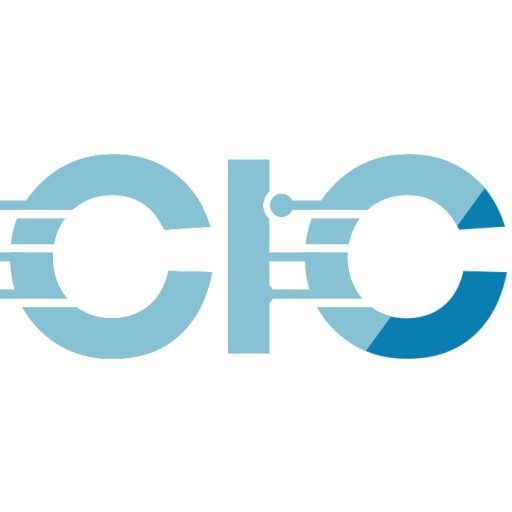Introduction
As the global shift toward renewable energy intensifies, solar energy has emerged as one of the most viable and environmentally friendly options. The integration of solar power into energy systems, particularly with lithium-ion batteries, presents numerous advantages, including energy storage, management, and efficiency. One essential element of these systems is the solar charge controller (SCC). This article delves into the significance of solar charge controllers in lithium-ion battery systems, exploring their functions, benefits, and the best practices for optimizing energy efficiency.
Understanding Solar Charge Controllers
Solar charge controllers are pivotal in managing the energy flow between solar panels and batteries. They regulate the voltage and current coming from the solar panels to ensure optimal charging and prevent battery damage. Essentially, they act as intermediaries that maximize energy harvest while safeguarding battery health.
Types of Solar Charge Controllers
Solar charge controllers can be categorized into two main types:
-
- PWM (Pulse Width Modulation) Controllers:
-
- PWM controllers modulate the solar panel output to match the battery's voltage. They are generally less expensive and simpler in design but may be less efficient compared to MPPT controllers.
-
- PWM (Pulse Width Modulation) Controllers:
-
- MPPT (Maximum Power Point Tracking) Controllers:
-
- MPPT controllers use advanced algorithms to optimize the power output from the solar panels. They continuously adjust the electrical operating point of the modules, enabling them to harvest more energy, especially in fluctuating environmental conditions.
-
- MPPT (Maximum Power Point Tracking) Controllers:
Key Functions of Solar Charge Controllers
-
- Battery Protection: Controllers prevent overcharging and excessive discharging, which can shorten battery life.
- Battery Protection: Controllers prevent overcharging and excessive discharging, which can shorten battery life.
-
- Voltage Regulation: They maintain a consistent voltage at the battery terminals, crucial for lithium-ion batteries that require specific charging conditions.
- Voltage Regulation: They maintain a consistent voltage at the battery terminals, crucial for lithium-ion batteries that require specific charging conditions.
-
- State of Charge Estimation: Many modern controllers can provide accurate state-of-charge metrics, ensuring users understand their battery's health.
- State of Charge Estimation: Many modern controllers can provide accurate state-of-charge metrics, ensuring users understand their battery's health.
-
- Load Management: Some charge controllers can manage the output to various loads based on the energy availability, optimizing the overall efficiency of the system.
- Load Management: Some charge controllers can manage the output to various loads based on the energy availability, optimizing the overall efficiency of the system.
-
- Data Logging and Monitoring: Advanced SCCs come equipped with features that allow users to monitor performance metrics and trends over time, contributing to better decision-making regarding energy use.
Importance of Solar Charge Controllers in Lithium-Ion Battery Systems
1. Maximizing Energy Harvesting
In a solar setup, the primary goal is to capture as much sunlight as possible and convert it into usable electricity. MPPT solar charge controllers excel in this aspect, as they continuously adjust the voltage to ensure the maximum power point of the solar panels is utilized. This adaptability is particularly advantageous when the sunlight intensity varies throughout the day.
2. Increasing Battery Longevity
Lithium-ion batteries are sensitive to charging practices. Overcharging can lead to thermal runaway, while deep discharging can cause permanent damage. A solar charge controller ensures the battery operates within its optimal charging range, promoting longevity and performance.
3. Enhancing System Efficiency
By regulating energy flow and managing voltage, solar charge controllers enhance the overall efficiency of solar energy systems. They prevent energy loss that can occur due to overvoltage, resulting in more reliable energy for users.
4. Cost-Effectiveness
While the initial investment in quality solar charge controllers may seem significant, the long-term savings offset these costs. By extending battery life and improving energy efficiency, SCCs reduce the need for frequent replacements, providing a more cost-effective solution in the long term.
5. Environmental Benefits
Optimizing the performance of solar energy systems directly impacts environmental sustainability. By maximizing energy use and minimizing waste, charge controllers contribute directly to reducing the ecological footprint of power generation.
Best Practices for Maximizing Efficiency with Solar Charge Controllers
1. Choose the Right Section Type
Selecting between PWM and MPPT controllers is critical. While PWM controllers may suffice for simpler systems, MPPT controllers are recommended for larger setups or those in varying light conditions due to their efficiency.
2. Match SCC Ratings
Ensure that the solar charge controller is appropriately rated for your battery and solar panel specifications. An oversized SCC can overshoot battery charging, while an undersized one may not charge fully.
3. Regular Monitoring and Maintenance
Regular checks on the performance of the solar charge controller are essential. Monitoring metrics like voltage, current, and state of charge can help identify potential issues early on, ensuring the entire system operates efficiently.
4. Use High-Quality Components
Cheap or low-quality charge controllers often lead to inefficiencies or even system failures. Investing in reputable brands and components ensures reliability and maximal energy output.
5. Consider System Upgrades
Over time, technology evolves. If you have an older solar panel or charge controller, consider upgrading to newer, more efficient models. New technologies often provide better efficiency ratings, which translates into better energy yields.
FAQs
1. What is a solar charge controller?
A solar charge controller is an electronic device that regulates the voltage and current coming from solar panels to batteries, ensuring optimal charging and preventing battery damage.
2. What is the difference between PWM and MPPT controllers?
PWM (Pulse Width Modulation) controllers are simpler and generally less expensive but less efficient, while MPPT (Maximum Power Point Tracking) controllers use advanced technology to maximize energy harvest from solar panels, especially in variable sunlight conditions.
3. How do solar charge controllers extend battery life?
By regulating the voltage and current during charging, solar charge controllers prevent overcharging and excessive discharging, which helps maintain the health and longevity of batteries.
4. Do solar charge controllers require maintenance?
While solar charge controllers are generally low-maintenance, regular monitoring of their performance is recommended to ensure they are functioning efficiently and to identify any potential issues early.
5. Can I use a solar charge controller with any battery type?
Solar charge controllers are designed for specific battery types and voltages. It is crucial to choose a controller compatible with your battery's specifications to ensure optimal performance and safety.
Conclusion
In summary, solar charge controllers are vital components of lithium-ion battery systems, enhancing energy efficiency and promoting longer battery life. By understanding their functions and implementing best practices, users can maximize the benefits of their solar energy systems, contributing to a more sustainable future. As the renewable energy landscape continues to evolve, investing in quality solar charge controllers will prove essential in harnessing the full potential of solar power.


